Will it harm my heat pump to turn it off?
olychick
2 years ago
last modified: 2 years ago
Featured Answer
Sort by:Oldest
Comments (45)
olychick
2 years agosktn77a
2 years agoRelated Discussions
Turn Off The Water & Turn Up The Heat
Comments (10)OKgrassguy, it is a mixed blessing on the farm. For the most part just what the doctor ordered. After two full years of no rain and triple digit heat for 5-months a year, it is a big turn around. So far only a single 90 degree day in N TX this year PeopleÂs water wells are now pumping water again, my stock ponds and reservoirs (everyone else too) are finally full from yesterdays rains. Corn is the tallest and healthiest I have ever witnessed around here (usually burnt to a crisp by now), and everything is green. With corn prices so high from ethanol pressure, it is going to be a stellar year for corn farmers this year. On the flip side, I have quite a bit of sod production areas under water from time-to-time around the creek beds. However with the floods comes free top soil evenly distributed with no labor cost. Lots of delays in harvesting sod waiting for what can be harvested to dry out enough to get the equipment in. Fortunately I have sandy loam, so it only takes a day or two of dry weather to dry things out. I have lost several acres of sod from being drowned, but not a devastating loss. The rest is so productive it makes up for it and provides a seed crop to replant the drowned areas later. Landscaping biz (my SonÂs biz) is good, just a lot of down days. However irrigation side is non existent. Only real complaint is tomato and pepper plants are suffering. Their feet are too wet and not enough sun to put fruit on. If it dries up a bit with some sunshine they should recover if the heat doesnÂt jump above 100. Anyway glad the usual summer high pressure ridge moved out of here this year and now someone else has to deal with heat and drought that it brings....See MoreHeat Pump Noise No Fan Turning
Comments (3)My fan motor recently had an internal short to ground. The symptoms were the fan ran continuously at 1/2 spd and when the thermostat called for heat the motor would start to buzz, but no increase in airflow. I ordered an entire fan assembly w/ motor for under $400, I couldn't get the motor shaft out of the fan assembly without destroying the entire thing. Prior to replacing the fan assembly, I changed out the fan relay to no avail....See MoreHeat Pump Compressor Not Turning on After Bumping Down Temp
Comments (2)" I had a guy come out and he replaced the dual run capacitor." I could give you a few reasons the unit might be misbehaving (all of them just guesses) but a compitent tech on site can tell you exactly why. Who'e idea was it to replace the capacitor? If it was the tech's,call him back for a free diaginosis,if it was your's stop going on the net like this and telling techs what to change....See MoreHeat pump draws too much power even when off or on stand by?
Comments (50)why don’t you just give the OP the final chapter in this mystery instead of playing games! The OP has the final chapter as of May 2 posted at 6:40pm. (quote) I think I found the source which is the strip heat. I opened the indoor unit panel and noticed it was a little warm in the area near the fan. I started touching the duct above it and felt even warmer. I put a thermometer in the red arrow as shown in the pic where it reads 108F. I assume this strip heat runs all the time and even when the A/C is on. (/quote) I posted this on May 2 at 5:22 am... (quote) 13 amps is a big load people. Most (new) air conditioners today when running draw less amps than this. I know this is a heat pump but if it's running in cool mode it's an AC ok? It easily could be that the strip heat section was improperly wired. Many times a series of strip heat will have multiple control wires so all the strips don't come on at once. One of these control wires may be inadvertently attached to control volt power, thus turning on the strip heat continuously as long as power is applied to the machine. (/quote) Do some quick calculation: So much for playing games. Huh? (OVER A WEEK AGO??) Yeah you're certainly not going to like this because the TRUTH, stings like a wasp....See MoreOlychick
2 years agolast modified: 2 years agoElmer J Fudd
2 years agopds290
2 years agoOlychick
2 years agoAustin Air Companie
2 years agoOlychick
2 years agoAustin Air Companie
2 years agoOlychick
2 years agolast modified: 2 years agoOlychick
2 years agoAustin Air Companie
2 years agoOlychick
2 years agoAustin Air Companie
2 years agomike_home
2 years agojrb451
2 years agoOlychick
2 years agoAustin Air Companie
2 years agoOlychick
2 years agolast modified: 2 years agomike_home
2 years agodadoes
2 years agoAustin Air Companie
2 years agodadoes
2 years agofsq4cw
2 years agodadoes
2 years agomike_home
2 years agoElmer J Fudd
2 years agolast modified: 2 years agoolychick
2 years agolast modified: 2 years agoAustin Air Companie
2 years agoCharles Ross Homes
2 years agoAustin Air Companie
2 years agoAustin Air Companie
2 years agoCharles Ross Homes
2 years agoAustin Air Companie
2 years agoStax
2 years agofsq4cw
2 years agoStax
2 years agoElmer J Fudd
2 years agolast modified: 2 years agodadoes
2 years agoAustin Air Companie
2 years agoStax
2 years agoCharles Ross Homes
2 years agoAustin Air Companie
2 years agoStax
2 years ago
Related Stories

LIVING ROOMSRoom of the Day: Dark and Daring Pay Off in a Den Redesign
Indigo walls and woodwork, textured furnishings, task lighting and a media center turn a neglected room into a family hangout
Full Story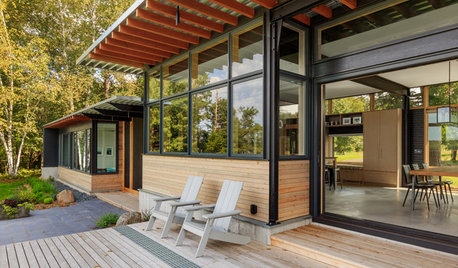
LIFE6 Ways to Cool Off Without Air Conditioning
These methods can reduce temperatures in the home and save on energy bills
Full Story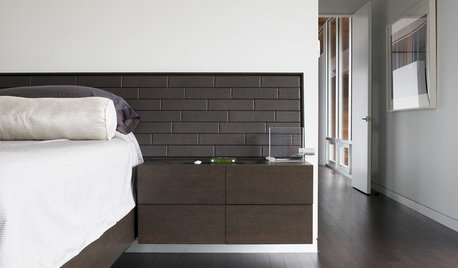
FLOORSFloors Warm Up to Radiant Heat
Toasty toes and money saved are just two benefits of radiant heat under your concrete, wood or tile floors
Full Story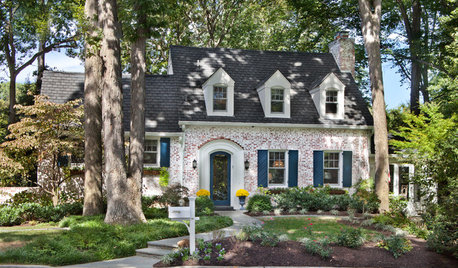
REMODELING GUIDESFinish Your Remodel Right: 10 Tasks to Check Off
Nail down these key details to ensure that everything works properly and you’re all set for the future
Full Story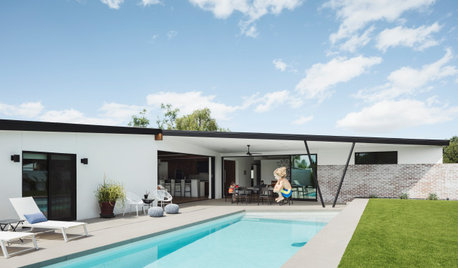
LANDSCAPE DESIGN25 Ways to Pump Up Your Pool for Summer Fun
Accent lights, sun shelves and fire features can give a swimming pool an extra burst of style and function
Full Story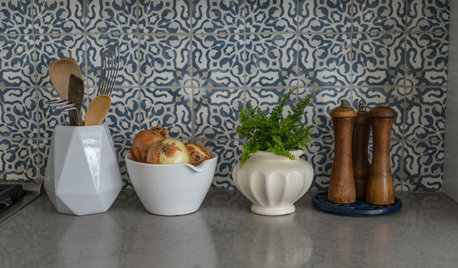
KITCHEN BACKSPLASHESNew This Week: These Graphic Backsplashes Pump Up White Cabinets
Look to elegant but energetic patterns to keep the serene feeling while packing in plenty of style
Full Story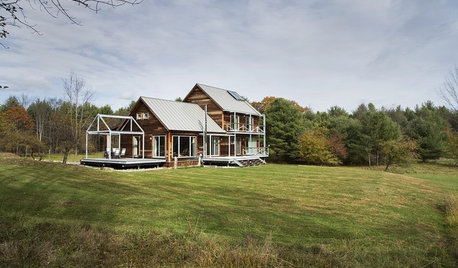
GREEN BUILDINGHouzz Tour: Passive House in Vermont Slashes Heating Bills
Its ecofriendly, low-maintenance design leaves a family with more time to relax and enjoy the weekend home
Full Story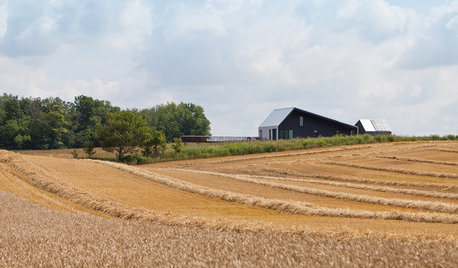
GREEN BUILDINGOff the Grid: Ready to Pull the Plug on City Power?
What to consider if you want to stop relying on public utilities — or just have a more energy-efficient home
Full Story
GREAT HOME PROJECTSHow to Add a Radiant Heat System
Enjoy comfy, consistent temperatures and maybe even energy savings with hydronic heating and cooling
Full Story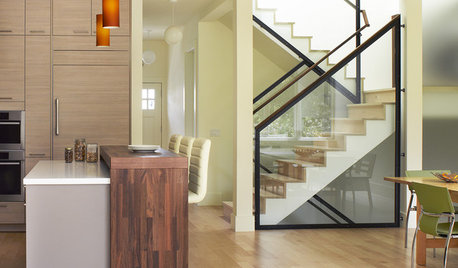
FLOORSIs Radiant Heating or Cooling Right for You?
Questions to ask before you go for one of these temperature systems in your floors or walls (yes, walls)
Full Story




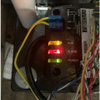
Charles Ross Homes